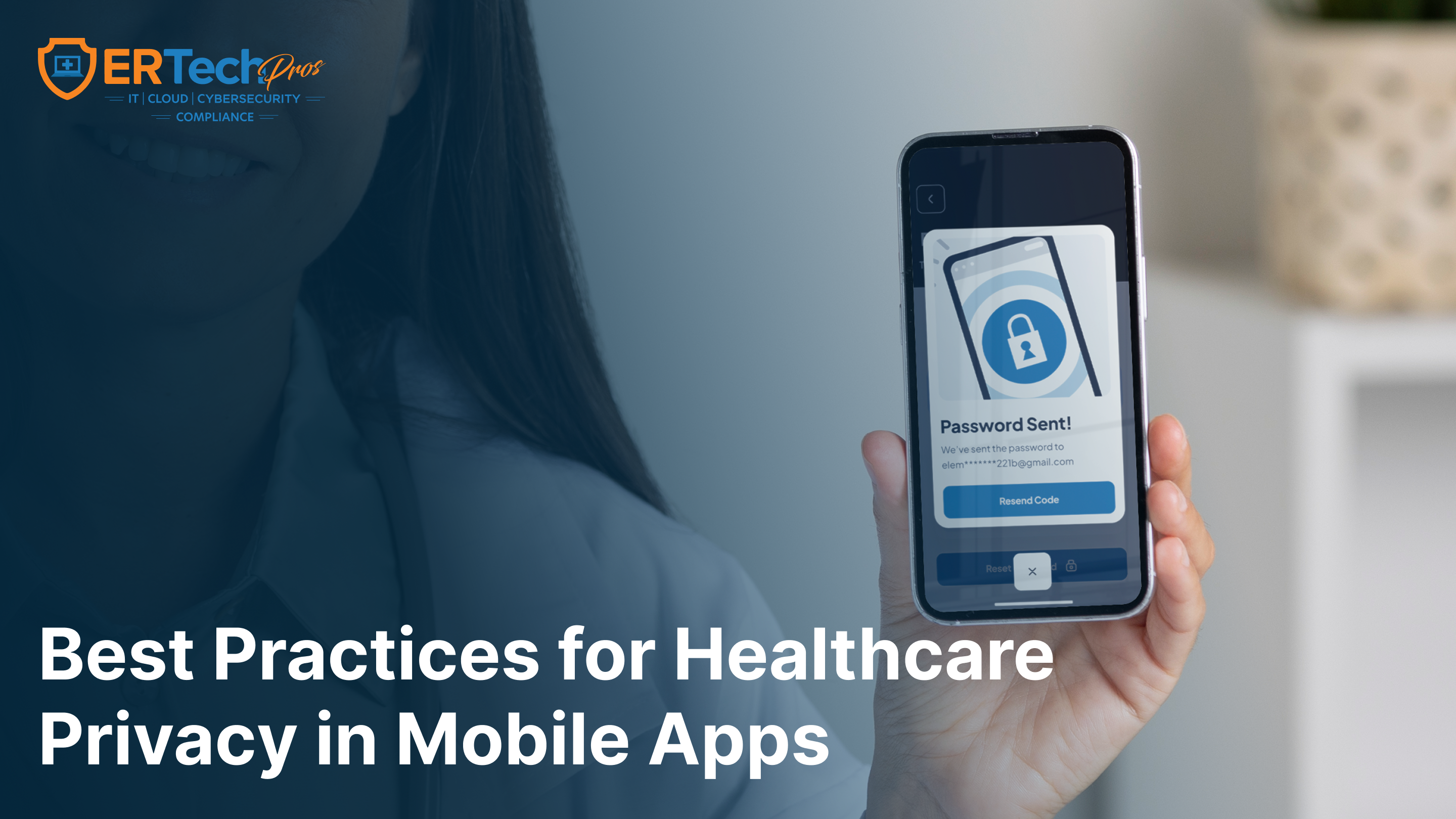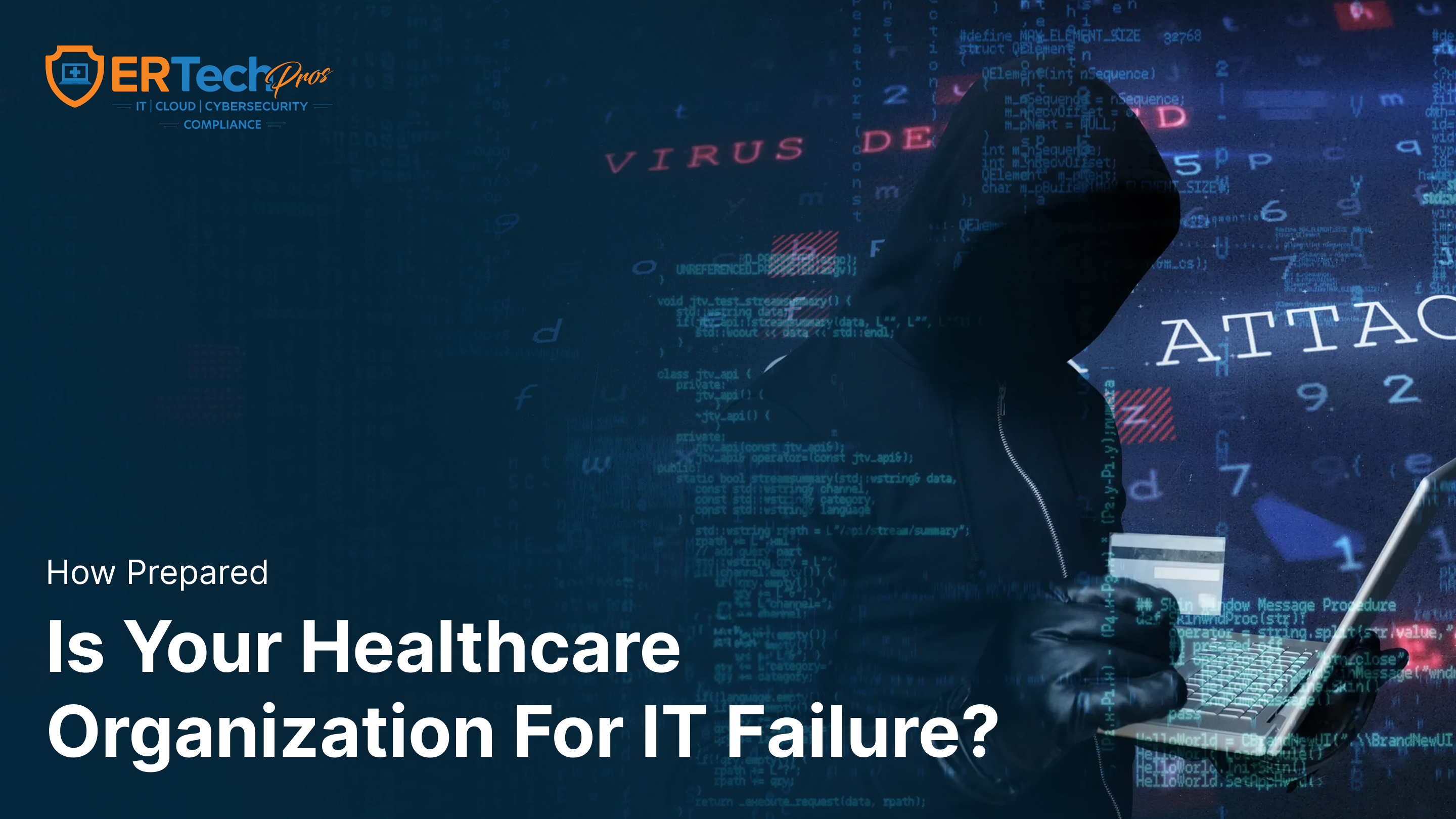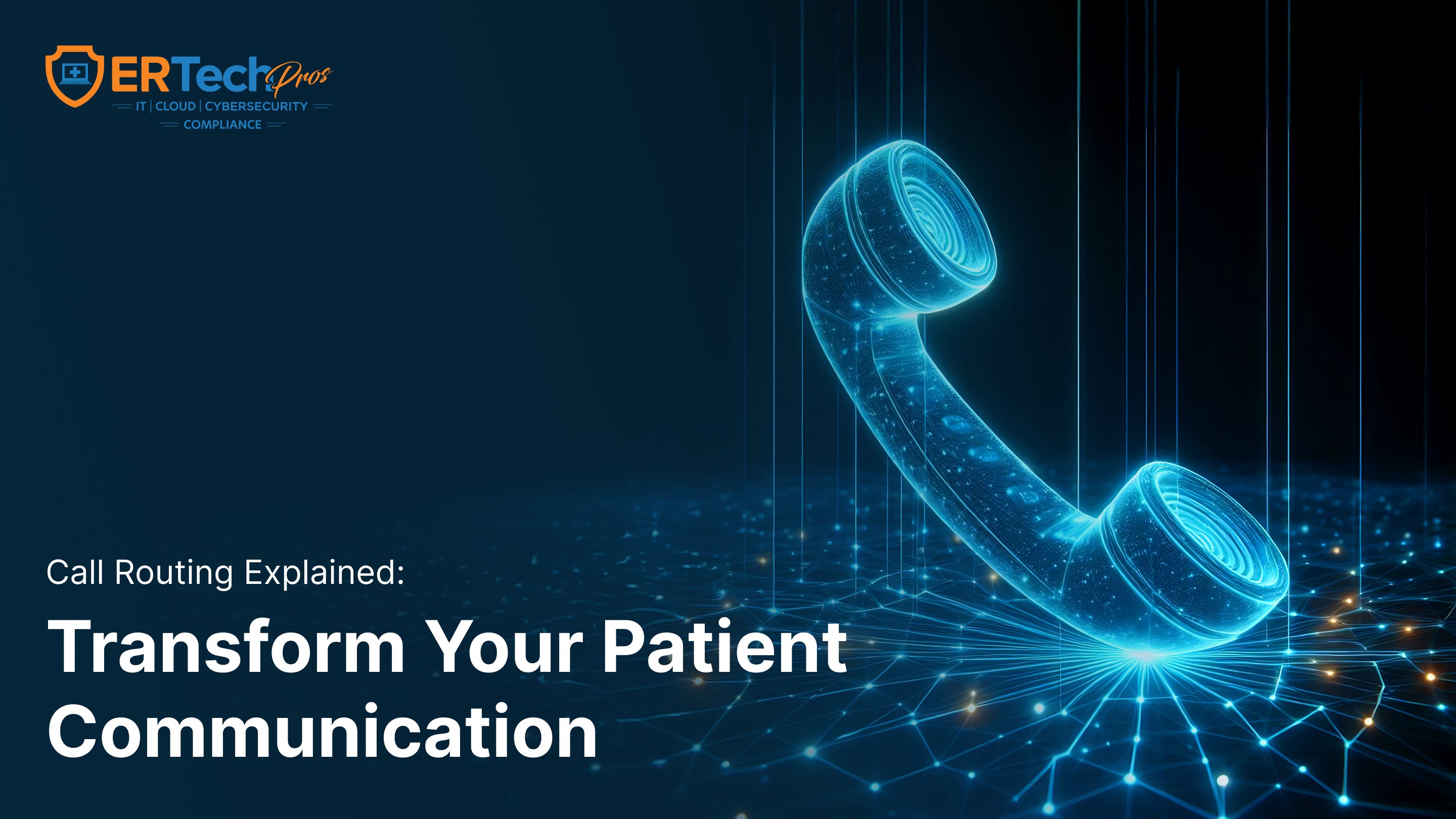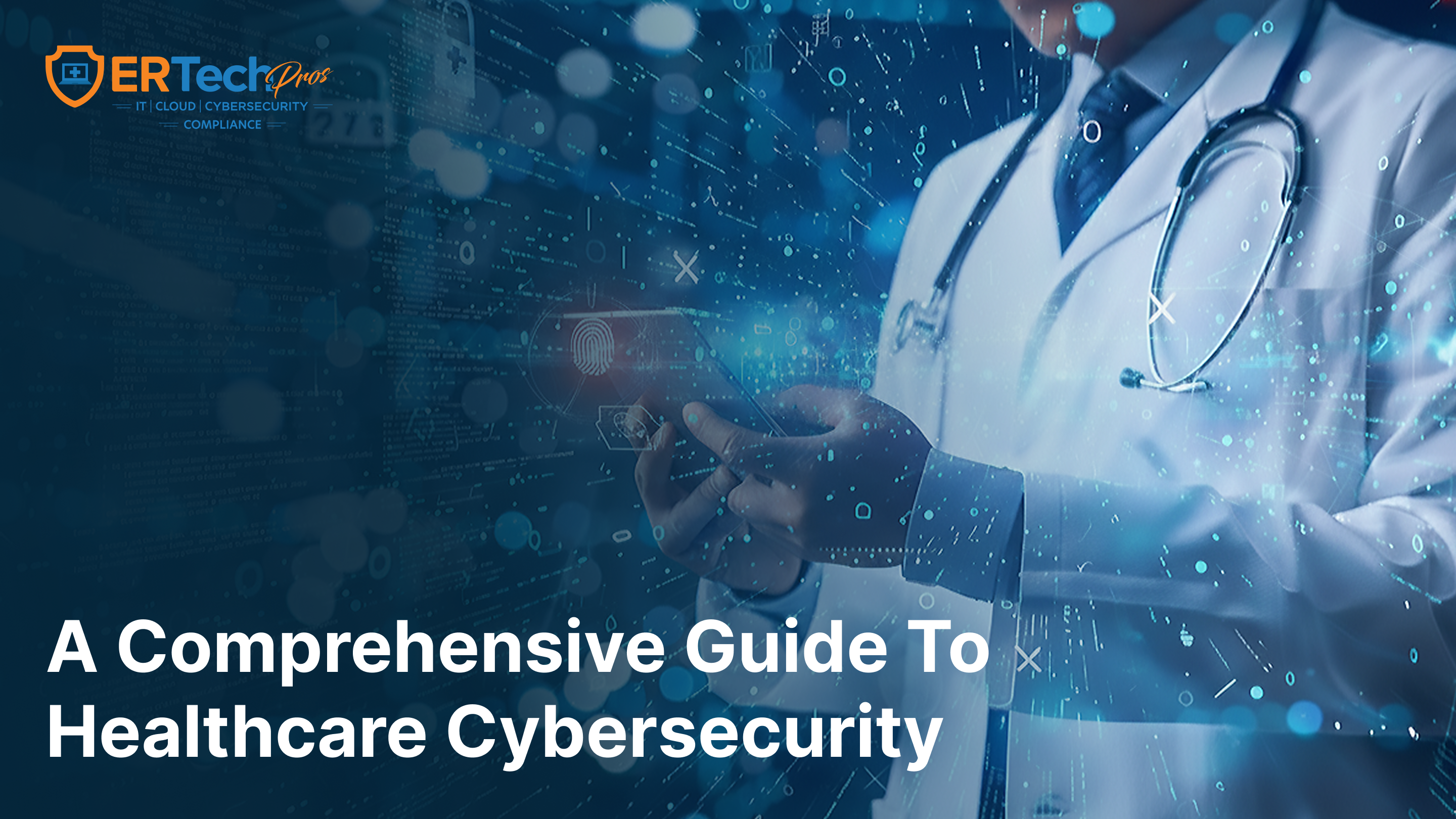Best Practices for Healthcare Privacy in Mobile Apps
Mobile health apps are transforming patient care, but not all mHealth applications protect sensitive patient data. Learn the key privacy risks, HIPAA considerations, and security measures healthcare practices must evaluate to safeguard protected health information (PHI).

As the world becomes increasingly digital, mobile applications have become an indispensable tool for businesses to drive engagement, enhance user experience, and boost sales—the healthcare industry included.
According to a report by INQVIA, more than 350,000 mobile health (mHealth) applications are currently available to users worldwide. In fact, the global mHealth market is presently valued at $49.2 billion, and Grand View Research expects it to expand at a compound annual growth rate of 11.6% over the next seven years.
Efficient, cost-effective, and convenient, a mobile health app can streamline patient–provider communication and give patients real-time access to their medical data, allowing them to take a more active role in managing their health.
With all the enthusiasm and excitement surrounding mHealth technology, many forget to ask a crucial question about it:
Is protected health information (PHI) safe in these mobile healthcare apps?
Privacy Risks Associated with Healthcare Apps
Not all mobile health applications are created equal. While many offer valuable features that enhance patient care, healthcare providers and patients must exercise caution and discernment when selecting and using these apps because they can come with risks.
A study by the British Medical Journal analyzed more than 20,000 mobile health applications and found serious privacy issues in them, namely:
- A massive 88% of the mHealth apps included code that could potentially access, collect, and share personal data.
- 28.1% of the mHealth apps provided no privacy policies.
- 23% of user data transmissions occurred on unsecure communication protocols.
- Most data collection operations involved third-party providers.
- Only 47% of user data transmissions complied with the privacy policy.
- Data collection in mHealth applications was neither transparent nor secure and often exceeded what is publicly disclosed by app developers.
The study concluded that the lack of transparency in mHealth application privacy policies (or the lack of privacy policies altogether) is a significant risk for anyone considering the adoption of the said technology.
Key Considerations When Choosing a Health App
When choosing a mobile health application for yourself or your clinic, it's crucial to prioritize privacy and security to protect your patients’ data and your clinic's reputation. Here’s a brief checklist of critical privacy-related considerations:
Data Encryption and Security Measures
- Encryption: Your mobile health application must use robust encryption methods to protect patient data—both in transit (transmitted between devices and servers) and at rest (stored on servers or devices). Look for applications that use protocols like HTTPS for data transmission and employ robust encryption algorithms.
- Authentication and Authorization: Your health app should implement secure authentication mechanisms, like multi-factor authentication (MFA), to verify the identity of users accessing patient data. It should also have robust authorization controls to ensure users can only access the information they need for their roles.
- Device Security: Consider how your mHealth application handles data on the device itself. Is data stored locally on the device? If so, how is it protected? Ensure your application has security measures to guard against unauthorized access to patient information if a device is lost or stolen.
Compliance with Privacy Regulations
- HIPAA Compliance: Your mobile health application must comply with relevant privacy regulations, especially the Health Insurance Portability and Accountability Act (HIPAA). While app developers are not covered entities under HIPAA, they are considered business associates if their mHealth app performs functions that involve access to PHI. They must comply with specific provisions of the HIPAA rules.
- Data Ownership and Consent: Clarify the terms of data ownership and user consent within the application. Patients need to know how a health app uses their data, and they must consent to it. If you plan to adopt a specific application in your healthcare practice, ensure it adheres to ethical standards and legal requirements regarding patient consent and data ownership.
- Data Breach Response Plan: Does the mHealth application have a well-defined plan for responding to data breaches? Understand how the provider communicates breaches, what steps they take to mitigate damage, and how they work to prevent future incidents.
Vendor Reputation and Security Practices
- Vendor Background Check: If you find a mobile health app you like, never use or deploy it until you’ve done a thorough (and skeptical) check on the vendor’s background and reputation. Look for genuine reviews, testimonials, and any history of security incidents. Research how long the vendor has been in the market and if they have any experience working with healthcare organizations.
- Security Audits and Certifications: Has the application undergone security audits? Does it have relevant certifications? Third-party certifications from reputable organizations can ensure that the application meets industry-accepted security standards.
- Update and Patch Management: Regular updates and patches are essential for addressing security vulnerabilities. Your mobile health app vendor needs to proactively address security issues and promptly release updates to patch any identified vulnerabilities.
ER Tech Helps You Find the App Your Healthcare Practice Deserves
Our privacy checklist may be brief and straightforward, but you need to know that you can’t DIY your way to a HIPAA-compliant and cybersecure healthcare practice.
When it comes to your patients’ privacy and your practice’s protection, you require the guidance and support of experienced cybersecurity experts specializing in healthcare. And that’s precisely where ER Tech Pros comes in.
Having been in the healthcare IT industry for over 20 years, we understand the complexities of clinic operations and the unique IT requirements your practice faces every day. We know that choosing a mobile health application isn’t as simple as typing it on a search bar and clicking Install.
It requires meticulous research, stringent assessment, careful setup, and 24/7 monitoring. Our team of IT, cloud, and cybersecurity engineers are ready to dive into all that for you!
Choose tried-and-tested mobile technology, make more informed decisions, and take your practice to the future with ER Tech Pros!
Got Questions? We've Got Answers
Find clear answers to common questions that help guide your healthcare IT operations.
Healthcare IT Solutions Built for Every Critical Second

Key Reasons IT Disaster Recovery Should Be A Top Priority for Healthcare Organizations

Call Routing in Healthcare: Why It Matters and How to Do It Right?
